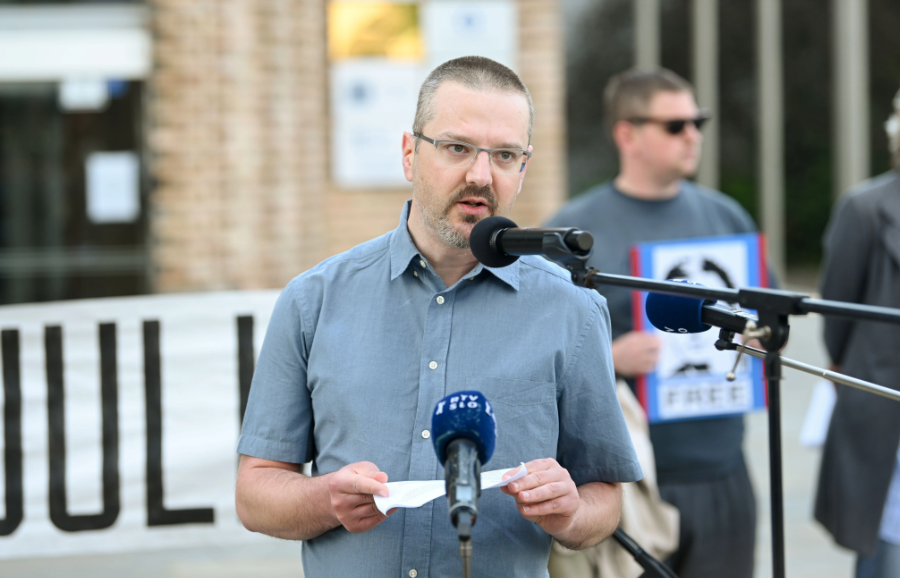Over the last three years, the European Union has allocated more than 7.4 billion euros to non-governmental organisations (NGOs). But a report by the European Court of Auditors reveals abuses in the EU’s NGO funding system: data on how the money has been spent is scarce, sometimes wrong; controls are ineffective, and funds are concentrated in the hands of a select few organisations. It is increasingly clear – the European NGO system does not reflect pluralism, but instead creates a monopoly of interest groups, funded by public money without real oversight. The report will therefore certainly influence the vote in the European Parliament’s Committee on Budgetary Control (CONT).
The European Court of Auditors also revealed that between 2014 and 2023, just 30 selected organisations received more than 3.3 billion euros – which is almost 40 percent of all EU funding for NGOs. The pluralist system is thus increasingly revealing itself to actually be a closed cartel of privileged organisations, according to MMC Brussels. At the same time, the European Commission does not seriously check whether these organisations are acting in line with EU values. Many of them are not even registered as NGOs.
Here is what MMC Brussels wrote on its X profile: “NGO FUNDING: EU Court of Auditors Exposes Systemic Opacity & Cronyism – Transparency “Practically Impossible”
A damning new report from the European Court of Auditors has torn apart the EU’s NGO funding racket. For years, Brussels has poured billions into activist NGOs while dismissing all scrutiny as “far-right paranoia.” Now, the EU’s own auditors admit the truth: no transparency, no oversight, no clue where the money goes. The Court’s brutal verdict: – “No reliable overview of EU funding granted to NGOs.” – “Obtaining reliable information… is practically impossible.”
Key findings: – Cronyism in Action: Just 30 NGOs received over €3.3 euros between 2014-2023 – 40 percent of the total. EU “pluralism” looks more like a cartel. – Opaque Systems: Data is fragmented across incompatible platforms, with key info missing, mislabelled, or buried. – Fictional Oversight: No real checks on whether funded NGOs uphold EU values. Many aren’t even classified as NGOs. – Advocacy Laundering: NGOs lobbying MEPs and Commissioners were quietly whitewashed in official databases – or not listed at all. – Broken Accounting: One grant worth €549M was listed as €317M. This isn’t bookkeeping – it’s systemic failure.
– Vanishing Money: €2.6B handed out via “shared management” with Member States between 2021-2023 – yet no consolidated data exists.
In short, the EU-NGO complex is murky, captured, and self-serving –and Brussels likes it that way. Faced with mounting scandal, the Commission quietly issued guidance in May 2024 banning NGOs from being required to lobby EU institutions. The fact that such guidance was even necessary says it all. @Furedibyte comments: “The systemic opacity revealed shows that the EU’s supposed commitment to transparency and accountability is nothing more than a façade.” And what’s the EU’s plan to fix this mess? – A proper NGO definition? Maybe by 2025. – FTS improvements? Try 2029. – Value checks? Sometime after 2028. By then, today’s beneficiaries will have taken the cash and vanished. This isn’t just a bureaucratic failure – it’s a moral one.”
The report also points out that the European Commission does not carry out adequate checks on how the funds are spent. An example of this is a subsidy of 549 million euros, which was shown as 317 euros million in the official records. A particular problem is funding through the so-called “shared management” with Member States, where 2.6 billion euros disappeared between the years 2021 and 2023 – with no reliable data on where the money went.
Laima Andrikiene, the Court’s member responsible for the report, pointed out that transparency is key to ensuring credible NGO participation in policy-making in the European Union. “The picture is still not clear, as information, including on lobbying, is neither reliable nor transparent,” she added.
🚨NGO FUNDING:
EU Court of Auditors Exposes Systemic Opacity & Cronyism – Transparency “Practically Impossible”A damning new report from the European Court of Auditors has torn apart the EU’s NGO funding racket.
For years, Brussels has poured billions into activist NGOs… pic.twitter.com/XZSQDsVOSj
— MCC Brussels (@MCC_Brussels) April 8, 2025
NGOs as a covert lobbying tool
Many associations that present themselves as NGOs also actively lobby Members of the European Parliament and the European Commission. Yet they are removed from the registers – or never recorded in them in the first place, which means that taxpayers are effectively funding powerful groups operating within the political sphere – but without any political accountability.
Civil society defends itself
In response to the report, European NGOs from the Civil Society Europe organisation (which includes 570 organisations) rejected the criticism as an attack on their legitimacy – including many NGOs from Slovenia. They accuse some on the European right of spreading disinformation and seeking to weaken civil society. In their view, public funding of NGOs is crucial for democracy, as organisations represent citizens’ interests and protect fundamental rights.
Among the signatories of the declaration in support of NGOs are also some Slovenian organisations, including Focus – Society for Sustainable Development (Fokus – društvo za sonaraven razvoj), the Slovenian Association for Bird Watching and Bird Studies (Društvo za opazovanje in proučevanje ptic Slovenije – DOPPS),
Slovenian Philanthropy, the Legal Centre for the Protection of Human Rights and the Environment (Pravni center za varstvo človekovih pravic in okolja – PIC), Umanotera, the Cause Institute (Inštitut Povod), the Sigma Association, Citizen D, KULTLAB Celje, the Slovenian Association for Public Health, Environment and Tobacco Control (Slovenska zveza za javno zdravje, okolje in tobačno kontrolo), and the SIBAHE – Slovenian Food Bank.
We need DOGE EU
It is more than obvious that it is time for a fundamental reform, like the one implemented in the US under the Trump administration, to ensure real transparency and fairness in the use of public funds earmarked for NGOs.
Sara Kovač


